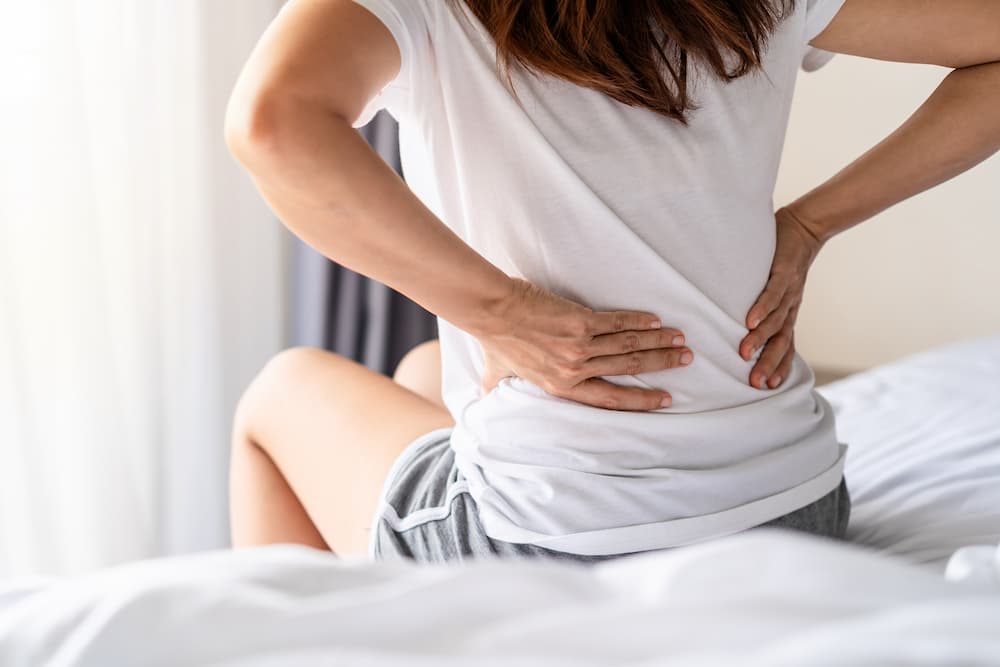
Lower Back Pain in Early Pregnancy: Causes, Management, and When to Seek Medical Attention
Lower back pain is a common complaint during pregnancy, affecting up to 80% of women. While it can be uncomfortable and disruptive, it is usually not a sign of a serious underlying condition. However, it is important to be aware of the potential causes and when to seek medical attention.
Causes of Lower Back Pain in Early Pregnancy
The causes of lower back pain in early pregnancy can be attributed to several factors:
- Hormonal changes: The hormone relaxin, which is produced during pregnancy, relaxes the ligaments and joints in the pelvis to prepare for childbirth. This relaxation can also affect the lower back, leading to pain.
- Increased weight: The growing uterus and baby put additional weight on the lower back, straining the muscles and ligaments.
- Posture changes: As the pregnancy progresses, the center of gravity shifts forward, causing women to arch their backs to compensate. This can put strain on the lower back.
- Muscle imbalances: The changes in posture and weight distribution can lead to muscle imbalances, which can contribute to lower back pain.
- Previous back problems: Women who have had lower back pain before pregnancy are more likely to experience it during pregnancy.
Management of Lower Back Pain in Early Pregnancy
Most cases of lower back pain in early pregnancy can be managed with simple measures:
- Rest: Avoid prolonged standing or sitting. Take frequent breaks to rest and elevate your feet.
- Exercise: Regular exercise, such as walking, swimming, or yoga, can help strengthen the muscles that support the lower back.
- Heat or cold therapy: Applying a warm compress or taking a warm bath can help relax the muscles. Alternatively, applying an ice pack can reduce inflammation.
- Massage: A gentle massage can help relieve muscle tension and pain.
- Supportive devices: A pregnancy support belt or maternity pillow can provide additional support for the lower back.
- Over-the-counter pain relievers: Acetaminophen (Tylenol) is generally considered safe to use during pregnancy. However, it is important to consult with your doctor before taking any medications.
When to Seek Medical Attention
While most cases of lower back pain in early pregnancy are not serious, there are certain situations where it is important to seek medical attention:
- Severe pain: If the pain is severe or does not improve with home remedies, it could be a sign of a more serious underlying condition.
- Pain that radiates down the leg: This could indicate a pinched nerve or other nerve damage.
- Pain accompanied by other symptoms: If the pain is accompanied by fever, chills, or vaginal bleeding, it could be a sign of an infection or other medical problem.
- Sudden onset of pain: If the pain starts suddenly and is accompanied by numbness or weakness in the legs, it could be a sign of a spinal cord injury.
Prevention of Lower Back Pain in Early Pregnancy
While it is not always possible to prevent lower back pain in early pregnancy, there are some steps that can help reduce the risk:
- Maintain a healthy weight: Excess weight can put additional strain on the lower back.
- Exercise regularly: Strong back muscles can help support the lower back.
- Practice good posture: Avoid slouching or arching your back.
- Wear supportive shoes: High heels can put strain on the lower back.
- Use a pregnancy support belt: A support belt can provide additional support for the lower back.
Conclusion
Lower back pain in early pregnancy is a common complaint that can be uncomfortable and disruptive. While most cases are not serious, it is important to be aware of the potential causes and when to seek medical attention. By following simple management strategies and taking steps to prevent lower back pain, women can minimize the discomfort and enjoy a healthy pregnancy.